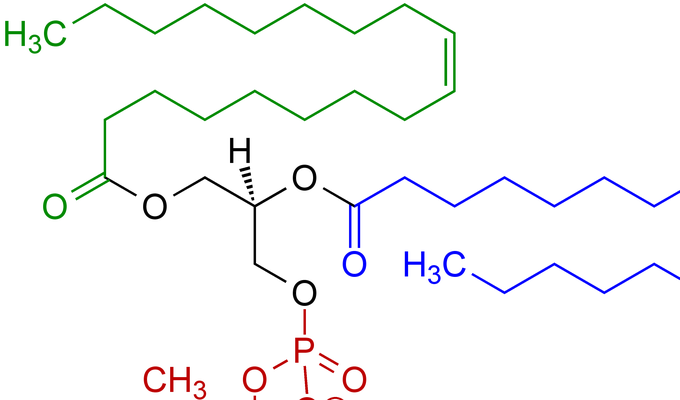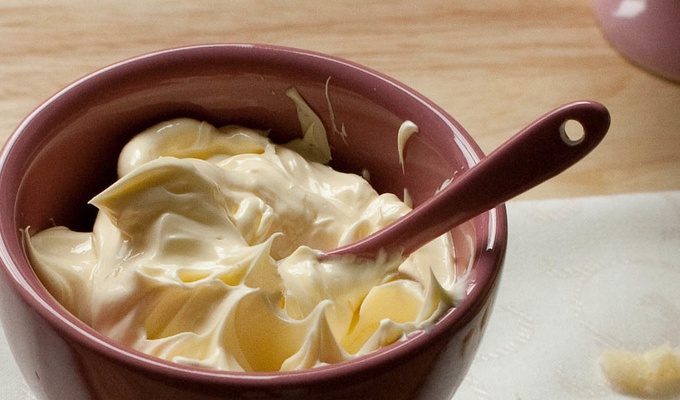An emulsifier is a substance that stabilizes an emulsion by reducing the oil-water interface tension. This tends to stabilize the emulsion, making it less likely to break and more resistant to changes in temperature.
Common emulifiers used in cooking include:
- Egg yolk, which contains naturally-occuring lecithin
- Mustard, due to the mucilage surrounding the seed hull, which contains emulsifying compounds
- Filé powder and molokhia, leaf vegetables which contain mucilage
- Soy lecithin, derived from soybeans
- Mono- and diglycerides
- Sodium stearoyl lactylate
- DATEM (diacetyl tartaric acid esters of mono- and diglycerides), which is used primarily in baking
- Protein, especially those with both hydrophilic and hydrophobic regions, such as sodium caseinate, which is present in meltable cheeses


